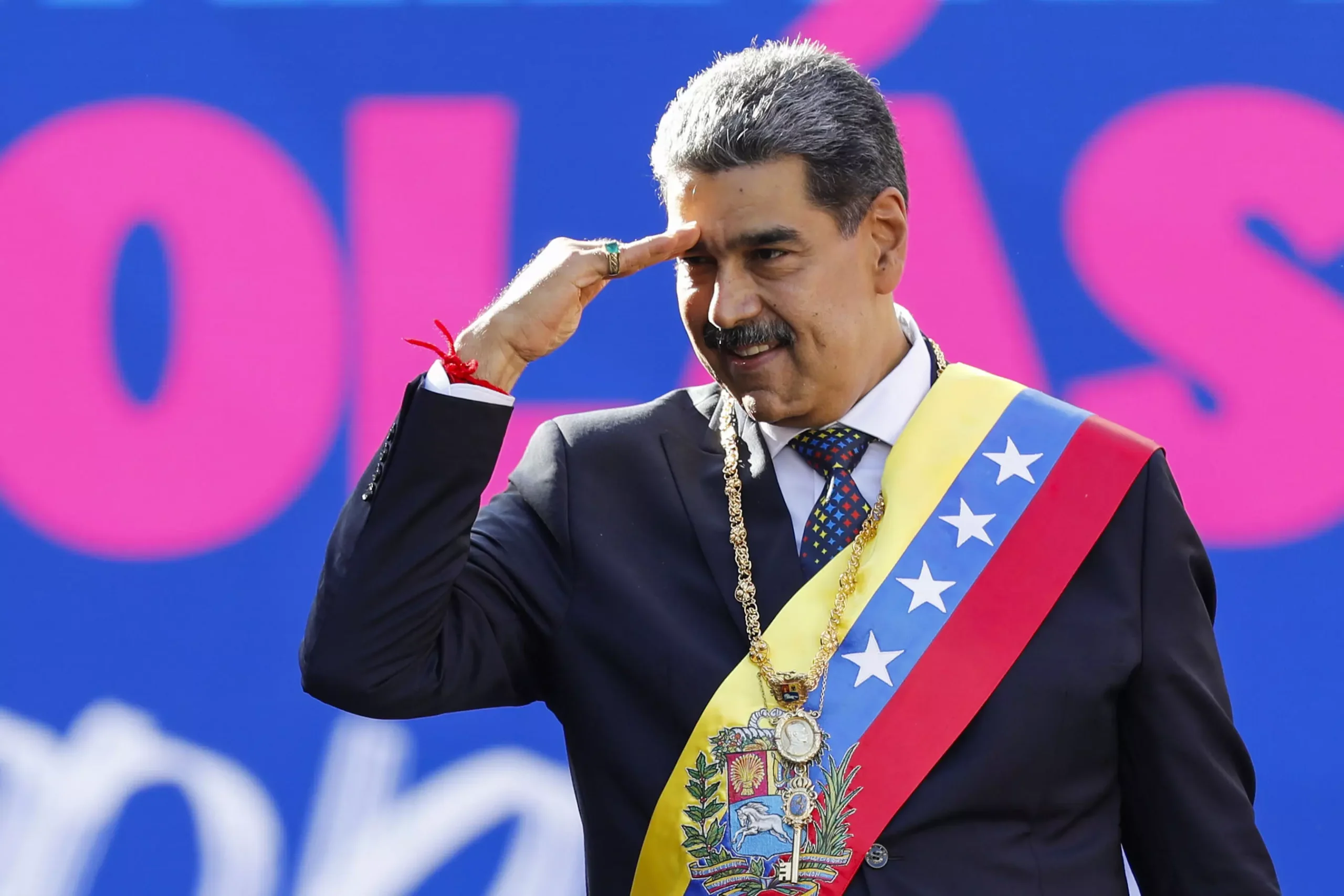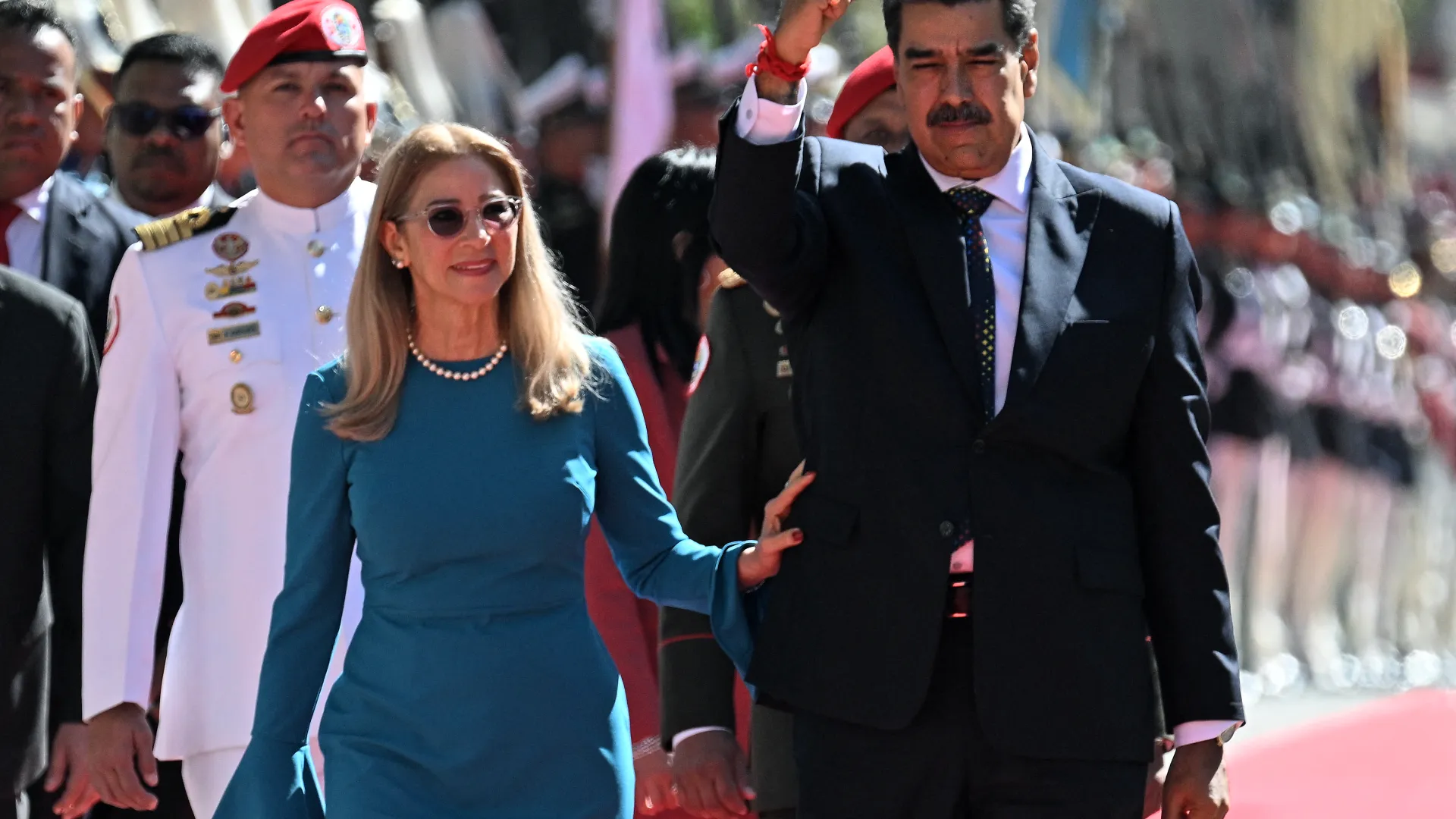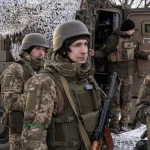Venezuela’s authoritarian president, Nicolás Maduro, has been accused of engaging in a blatant and fraudulent power grab after taking an oath for a third term, despite widespread domestic protests and international condemnation regarding his alleged manipulation of the 2024 election results.
Maduro, 62, hailed his inauguration as “a great victory for Venezuelan democracy” during a sparsely attended ceremony in Caracas, which was boycotted by leaders of democratic nations.
While Maduro continued his 12-year rule, the United States announced a $65 million bounty for his arrest and that of two of his closest allies, citing international drug trafficking charges, and rejected his claim to the presidency.
Maduro, who has steered Venezuela toward increasing authoritarianism since his election in 2013, has failed to present any credible evidence supporting his claim that he won the election on July 28.
His opponents have provided detailed evidence suggesting that their candidate, Edmundo González, was the actual winner, pointing to widespread dissatisfaction with Venezuela’s economic collapse as a driving factor.
On Friday morning, Maduro – who has refused to give up power, supported by military and security chiefs – stood before the national assembly, wearing Venezuela’s yellow, blue, and red presidential sash.
Among those who skipped the event in protest were the left-wing presidents of Brazil and Colombia, Luiz Inácio Lula da Silva and Gustavo Petro, long-time regional allies who have refused to acknowledge Maduro’s claim to victory.
On the other hand, the authoritarian leaders of Cuba and Nicaragua, Miguel Díaz-Canel and Daniel Ortega, occupied front row seats at the ceremony. The authoritarian heads of China and Russia, Xi Jinping and Vladimir Putin, also sent their representatives.
In a lengthy and defiant 90-minute speech, Maduro described himself as the leader of a “democratizing revolution” in Venezuela, presenting himself as a fearless anti-imperialist figure leading an “eminently democratic project,” which he claimed was inspired by the independence heroes of Latin America.
He condemned his political rivals as violent and “putrid” fascists and oligarchs, even going as far as calling Argentina’s right-wing president, Javier Milei, a far-right “Zionist Nazi” and “social sadist.”
“I wasn’t made president by the US government or by pro-imperialist governments in Latin America,” Maduro proclaimed. “I come from the people. I am of the people – and my power comes from history and the people!”
Maduro’s swearing-in sparked a fresh wave of international condemnation, even from members of the political left, whom Maduro claims to represent.

Chile’s progressive president, Gabriel Boric, declared, “I am someone from the left, and from the left I tell you: Nicolás Maduro’s government is a dictatorship.”
US Secretary of State Antony Blinken stated, “The Venezuelan people and the world know that Nicolás Maduro clearly lost the 2024 presidential election and has no right to claim the presidency today. We stand ready to support a return to democracy in Venezuela.”
UK Foreign Secretary, David Lammy, expressed, “Nicolás Maduro’s claim to power is fraudulent. The outcome of July’s elections was neither free nor fair, and his regime does not represent the will of the Venezuelan people.”
Lammy also announced fresh sanctions in coordination with the EU, targeting 15 individuals connected to Maduro’s regime, and added, “The UK will not stand by while Maduro continues to oppress, undermine democracy, and commit appalling human rights violations.”
Kaja Kallas, the EU’s foreign policy chief, stated, “Maduro lacks all democratic legitimacy.”
Canada’s Minister of Foreign Affairs, Mélanie Joly, whose country formally recognized González as Venezuela’s president-elect on Thursday, said, “Maduro’s shameless actions demonstrate that democracy and the rule of law cannot be taken for granted. We will not tolerate the erosion of the democratic process or the repression of citizens seeking to express their rights.”
The US also announced it was increasing its reward for information leading to the capture of Maduro and his interior minister, Diosdado Cabello, for alleged drug trafficking offenses, raising the reward to $25 million, and offering $15 million for information leading to the capture of Maduro’s defense minister, Vladimir Padrino López.
Brazil’s President Lula refused to attend the inauguration, with his close ally, Senator Jaques Wagner, telling local media, “The relationship with Venezuela has soured.”
González, a retired diplomat who entered politics just last year, had vowed to return to Venezuela from exile to conduct his own swearing-in. However, by Friday afternoon, María Corina Machado, his main backer, announced that González would no longer be going.
“Edmundo will come to Venezuela to be sworn in as Venezuela’s president at the right time when the conditions are suitable,” Machado said in a video recorded at a secret location. She blamed the decision on Maduro’s order to activate Venezuela’s air-defense systems, attributing it to what she called his “delusional paranoia.”
Earlier that day, General Domingo Hernández Lárez, a high-ranking army commander, posted a video showing a Russian surface-to-air missile system being deployed, which was seen as a warning that González’s plane could be shot down if he attempted to return to Venezuela.
Despite these challenges, Machado remained optimistic, asserting that Maduro’s days were numbered and that a democratic transition was “very close.”
“Have no doubt, this is over,” she said, urging Venezuelans to protest. “Maduro has consolidated his coup and the violation of our constitution. It is time to do whatever is necessary to restore it.”


